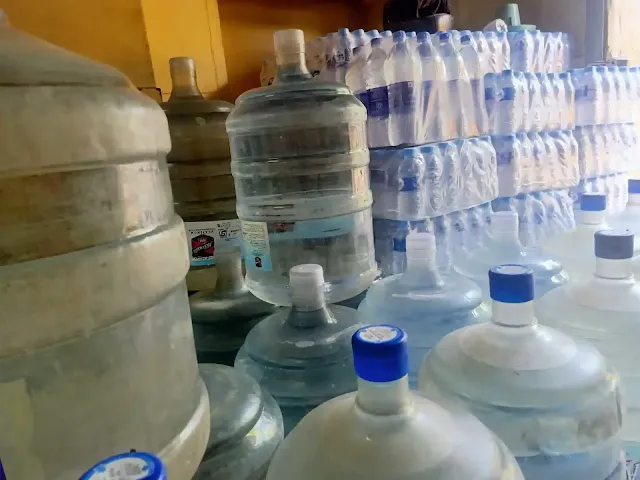The Consumers Association of India has warned that 90 percent of the drinking water cans sold in the market are not suitable for drinking.
Consumer laws in India are adequate but not properly enforced. It is the government's duty to provide safe drinking water. We can sue when the government defaults on that duty.
It is our duty to protect our family and relatives from harm caused by drinking unsanitary drinking water.
As the population increases, the supply of water decreases. We should adopt rainwater harvesting systems. The government should not be blamed for encroaching on water bodies and not providing enough drinking water. Individual morality is also essential.
It is wiser to keep water unpolluted than to treat polluted water. People should stop defecating in the open. Water pollution increases due to improper use of toilets. Garbage should also be disposed of properly. It should not be thrown away carelessly as if it were a child's excrement. Safe drinking water is only half possible if waste is properly disposed of.
The Department of Food Safety has issued various instructions to private treatment plants across the state due to continuous complaints against some drinking water treatment plants operating in major cities including Chennai. In a press release issued by the Commissioner of Tamil Nadu Food Safety Department, it has been stated that:-
The Department of Food Safety receives many complaints about the quality of bottled drinking water that is widely used by the public. Also drinking substandard drinking water is likely to cause cholera, typhoid, amebiasis, and diarrhea.
Appropriate action will be taken under the Food Safety and Standards Act if bottled drinking water falls short of the standards defined under the Food Safety and Standards Act.
All manufacturing companies producing bottled drinking water must have a license from the Department of Food Safety and a license issued by the Bureau of Indian Standards (BIS). It is mandatory to follow the guidelines mentioned in the Food Safety and Standards Act-2006 and Regulations-2011 in manufacturing establishments from the beginning to the end stage.
Labels should be clearly affixed especially on 20-liter cans and the cans should be thoroughly washed before filling each time with drinking water. Bottled drinking water should be distributed for consumer use after testing its quality during production.
According to the provisions of the Food Safety Act and Regulations, the labels on the cans must include information such as the license number of the Food Safety Department, the license number issued by the BIS, the name and complete address of the manufacturer, net weight, badge number, production date, shelf life. Are the above details available when the public buys bottled drinking water from the shops? Check and buy.
Of the 1640 samples of bottled drinking water taken and sent for analysis by the Food Safety Department, 694 samples were found to be of good quality, 527 samples were unsafe, and 419 samples were reported to be of low quality or mislabeled.
According to the Food Safety and Standards Act – 2006, 173 cases have been registered in the Criminal Justice Arbitration Court against manufacturers and sellers of bottled drinking water reported as unsafe, 74 cases have been verdict and a fine of Rs 12.84 lakh has been imposed. Of the 334 cases registered in the court against producers and sellers of bottled drinking water reported to be of low quality, 227 cases have been adjudicated and a fine of Rs 39.69 lakh has been imposed.














0 Comments